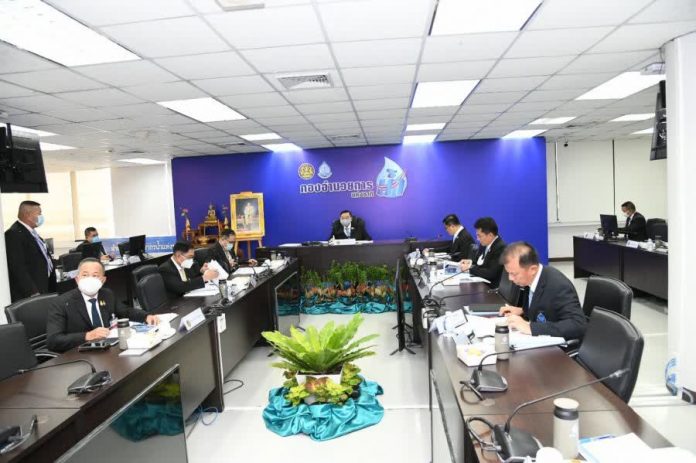BANGKOK (NNT) – ONWR chair DPM Gen Prawit Wongsuwan has ordered related agencies to solve the flooding disaster in the southern region and prepare a mitigation plan for the expected drought disaster this year, minimizing the impact on the general public.
The Office of National Water Resources (ONWR) Secretary General Somkiat Prajamwong has announced the outcome of a meeting chaired by Deputy Prime Minister Gen Prawit Wongsuwan, saying that the ONWR will be working to instigate short-term drought mitigation projects such as the construction of groundwater wells for a March-April completion, while developing a long-term plan to find good sources of ground water.
The office is also instructed to address the current flood disaster in the southern region, where more water is expected to be discharged from Bang Lan Dam over the next six days as its water level is near capacity.
Currently, the reservoir at Bang Lan Dam has received 14 million cubic meters of water. The dam is currently discharging 12 million cubic meters of water daily, with two million cubic meters accumulating in the reservoir each day.
Villagers downstream from the dam are now warned of possible overflows and more flooding. Related agencies are responsible for assisting affected persons.
Across the country, the overall volume of water reserves is now some 570 million cubic meters. This figure gives a more optimistic overview of the upcoming dry season than in the previous year.
The ONWR currently expects areas in 32 provinces to be at risk during this year’s dry season, with 79 subdistricts in these provinces not served by an irrigation network.
The office has ordered the Provincial Waterworks Authority and local administrations to draw up drought disaster prevention and mitigation plans, while placing the Royal Rainmaking station at Nakhon Sawan on standby, for drought mitigating rainmaking operations.
The office is also addressing provinces reporting excessive water usage in agriculture beyond the water allocation plan, to avoid the long-term consequences.


